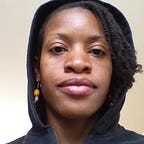Who Watches ‘Watchmen’?
A landmark comic becomes a show that spins the popular notion of black-white accepted realities around
 In the days following Sept. 11, 2001, when the nation’s shock and despair at witnessing the massive loss of life and destruction of physical and psychological identity turned to resolve in some and furor in others, our leaders planned. The terror attacks on American landmarks were an act of war, they said. America would respond in kind. One week later, with the heap of concrete, rebar, and glass to which the World Trade Center had been reduced still smoldering — and many Americans’ rage along with it — the president authorized the use of force against those responsible. We would get our retribution. Not even a month later, Americans erupted in cheers watching U.S. B-52s pepper Afghanistan with bombs. Such were the consequences — swift, decisive, and devastating — for inflicting pain upon our nation.
In the days following Sept. 11, 2001, when the nation’s shock and despair at witnessing the massive loss of life and destruction of physical and psychological identity turned to resolve in some and furor in others, our leaders planned. The terror attacks on American landmarks were an act of war, they said. America would respond in kind. One week later, with the heap of concrete, rebar, and glass to which the World Trade Center had been reduced still smoldering — and many Americans’ rage along with it — the president authorized the use of force against those responsible. We would get our retribution. Not even a month later, Americans erupted in cheers watching U.S. B-52s pepper Afghanistan with bombs. Such were the consequences — swift, decisive, and devastating — for inflicting pain upon our nation.
In the months following May 31, 1921, when black Tulsans’ disappointment and outrage at witnessing the massive loss of life and destruction of physical and psychological identity turned into despondency in some and determination in others, our leaders did nothing. The looting of businesses and massacre of citizens during the Tulsa Race Riot were par for the course, they seemed to say. Black Wall Street was on its…
